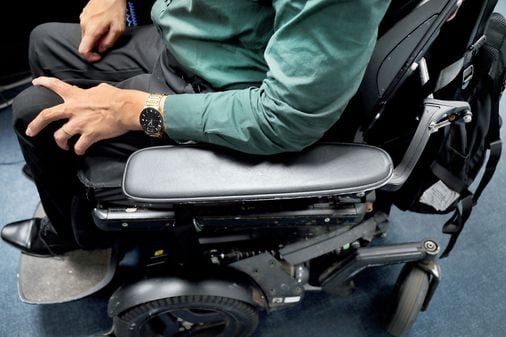A bill passed by the state Senate earlier this month would require companies to diagnose problems within days and provide a loaner chair while repairs are ongoing. A wheelchair industry trade group backs a competing bill that would address insurance barriers and reimbursement.
In addition to these important issues affecting wheelchair users, which lawmakers should resolve, the problem points to a larger issue affecting many aspects of health care: the growing involvement of private equity.
Private equity is a form of investment where investors buy a stake in a company with the goal of increasing its value then selling it. In a typical transaction, a private equity firm takes money from investors (like pension funds) and combines it with money borrowed from a bank to buy a health care provider. It sells the provider after three to seven years. The private equity firm takes management fees and profits when the provider is sold.
Private equity is not necessarily a bad form of ownership. It is often used to make companies more efficient. But it creates pressure to obtain short-term returns, and the strategies that pull profits from health care companies may not serve patients.
For example, in the wheelchair market, reporting by Mother Jones and the financial watchdog Private Equity Stakeholder Project found that private equity-owned Numotion and National Seating and Mobility bought out their competitors, then won Medicare contracts by offering low prices. That led to less competition and also a need to keep costs low, whether by using lower-quality parts or hiring fewer repair technicians. (The companies acknowledge service challenges but blame factors like insurance requirements and labor shortages.)
Medical equipment is only one health care segment eyed by private equity. The Massachusetts Health Policy Commission released data in December that show that of 158 transactions involving health care providers between 2013 and 2022, 71 involved private equity firms, 29 of which occurred in 2021 or 2022. The majority of private equity transactions involved home health and hospice, behavioral health, and dental offices.
Eileen O’Grady, research and campaign director at the Private Equity Stakeholder Project, said private equity gravitates toward fields that are fragmented, where firms can buy up competitors. Home health and behavioral health are also growing markets, with an aging population and regulatory changes that provide more insurance coverage for mental health and substance use treatment.
While there is less data available from these industries, studies of private equity investment in hospitals and physician practices suggest it is correlated with higher prices and lower quality.
A study published in JAMA in December found that private equity acquisition of hospitals was associated with a 25 percent increase in hospital-acquired conditions, like falls and infections. Dr. Zirui Song, associate professor of health care policy and medicine at Harvard Medical School, presented data to the Health Policy Commission showing that hospitals acquired by private equity charged more than other hospitals and saw their income rise by an average of $2.3 million annually. They also had higher rates of complications and mortality.
Physician practices acquired by private equity increased prices by 11 percent on average, Song said. Nursing homes acquired by private equity had higher rates of mortality, hospitalizations, and emergency department visits.
Song said one reason for worse outcomes may be that to cut costs, providers often cut staff and replace physicians with lower-cost nurses or physician assistants, while increasing patient volume. Private equity investors also use financial strategies that load providers with debt, which pressures them to find cash quickly. That incentivizes cost-cutting measures like layoffs rather than measures to slowly grow a practice.
There have been high-profile financial problems at several private equity-owned hospitals, like the 2019 bankruptcy and closure of Philadelphia’s Hahnemann University Hospital. In Rhode Island, the attorney general sued private equity firm Prospect Medical Holdings last year for violating conditions imposed on the firm when it acquired two hospitals, including owing millions of dollars to vendors. Prospect Medical Holdings left three Connecticut hospitals in dire financial straits and made severe operational cuts, according to the Connecticut Mirror news outlet, and a potential buyer of the hospitals is now seeking state money for the purchase. In Massachusetts, private equity-owned Wellpath, which provides prison health care, is being scrutinized for alleged poor care and inadequate staffing.
With the growing ubiquity of private equity, a vital first step is for the Legislature to give the Massachusetts Health Policy Commission authority, which the agency has asked for, to collect data on and scrutinize private equity transactions. Currently, state law requires health care providers to notify the commission when they merge with or are acquired by a hospital, insurer, or other provider if the transaction meets certain revenue thresholds. Expanding the law to require notification of transactions involving for-profit, non-health care entities, with a low revenue threshold, would increase transparency. It would also provide oversight, since the commission can conduct in-depth investigations on market impacts or refer transactions to the attorney general for scrutiny.
Having that data will let lawmakers consider whether additional policy steps are warranted. For example, a Massachusetts law prohibiting the “corporate practice of medicine” likely needs modernizing to reflect business arrangements that developed after the law was written. Lawmakers could consider regulating the terms of financial relationships, like limiting the amount of debt that can be used in a health care transaction or imposing financial liability on a private equity firm if a provider declares bankruptcy.
It’s better to consider common-sense regulations proactively than wait until a local provider is in crisis.
Editorials represent the views of the Boston Globe Editorial Board. Follow us @GlobeOpinion.

